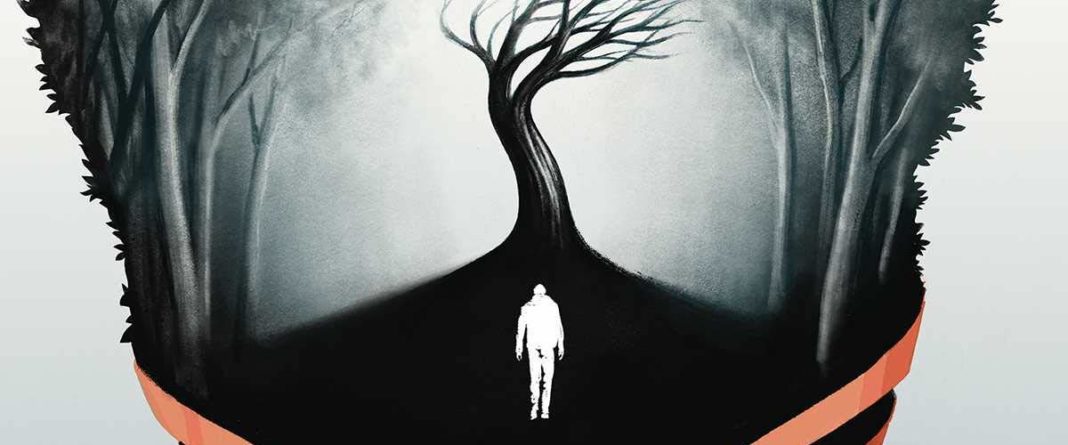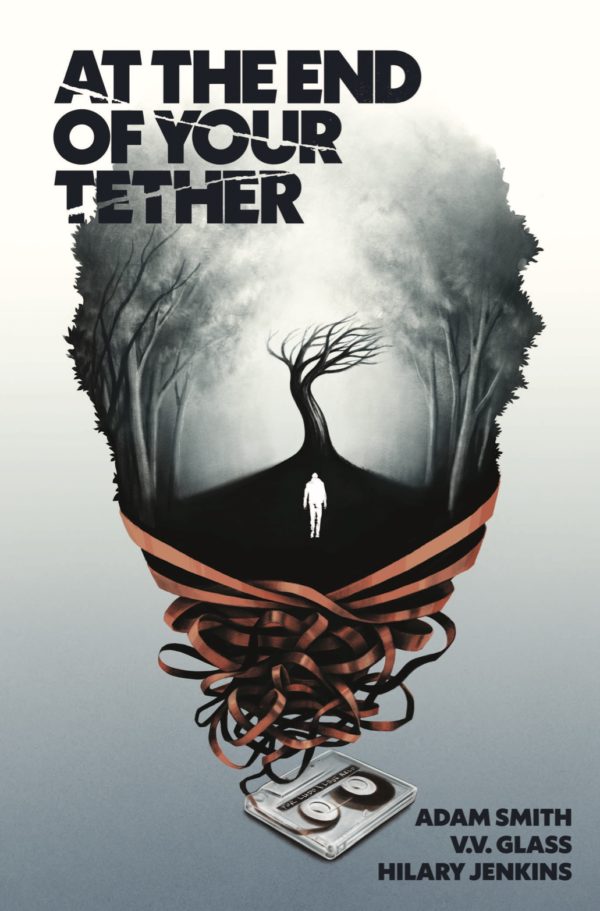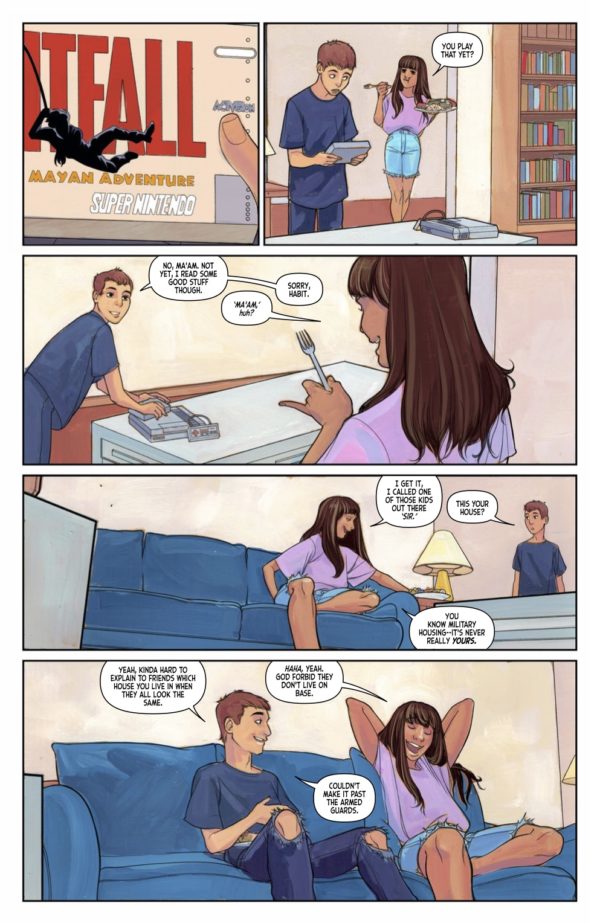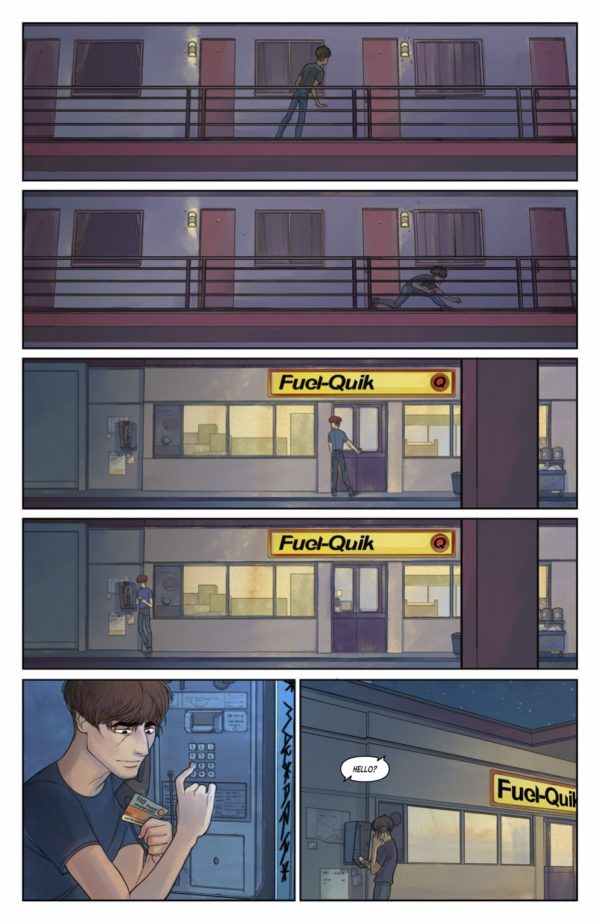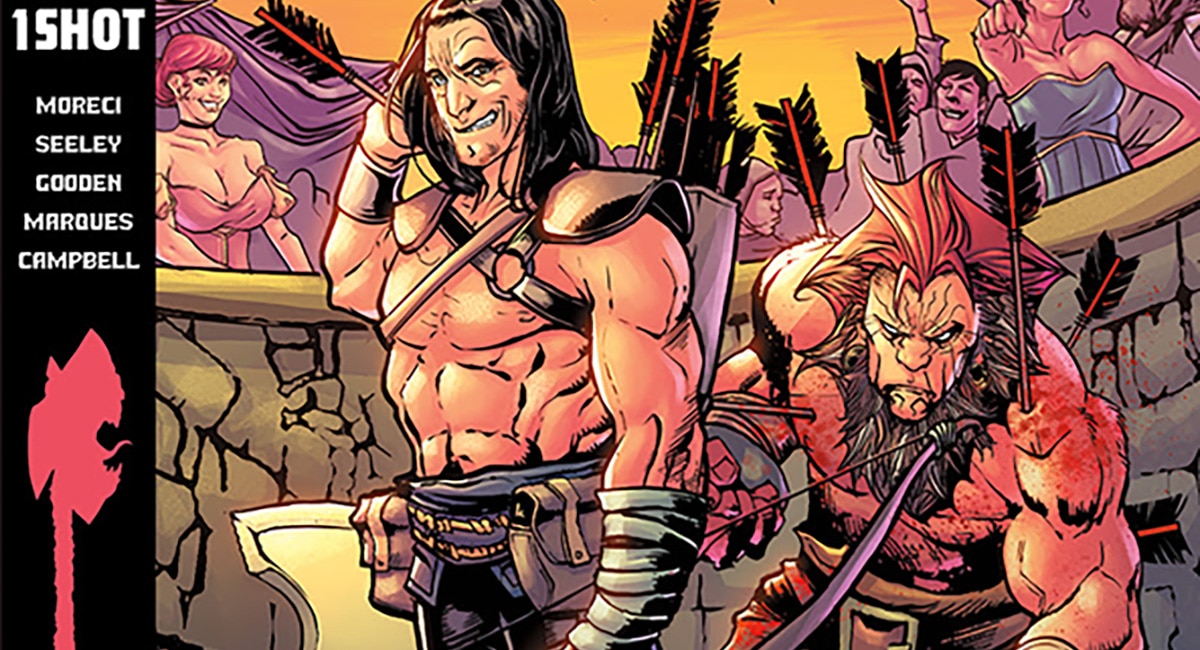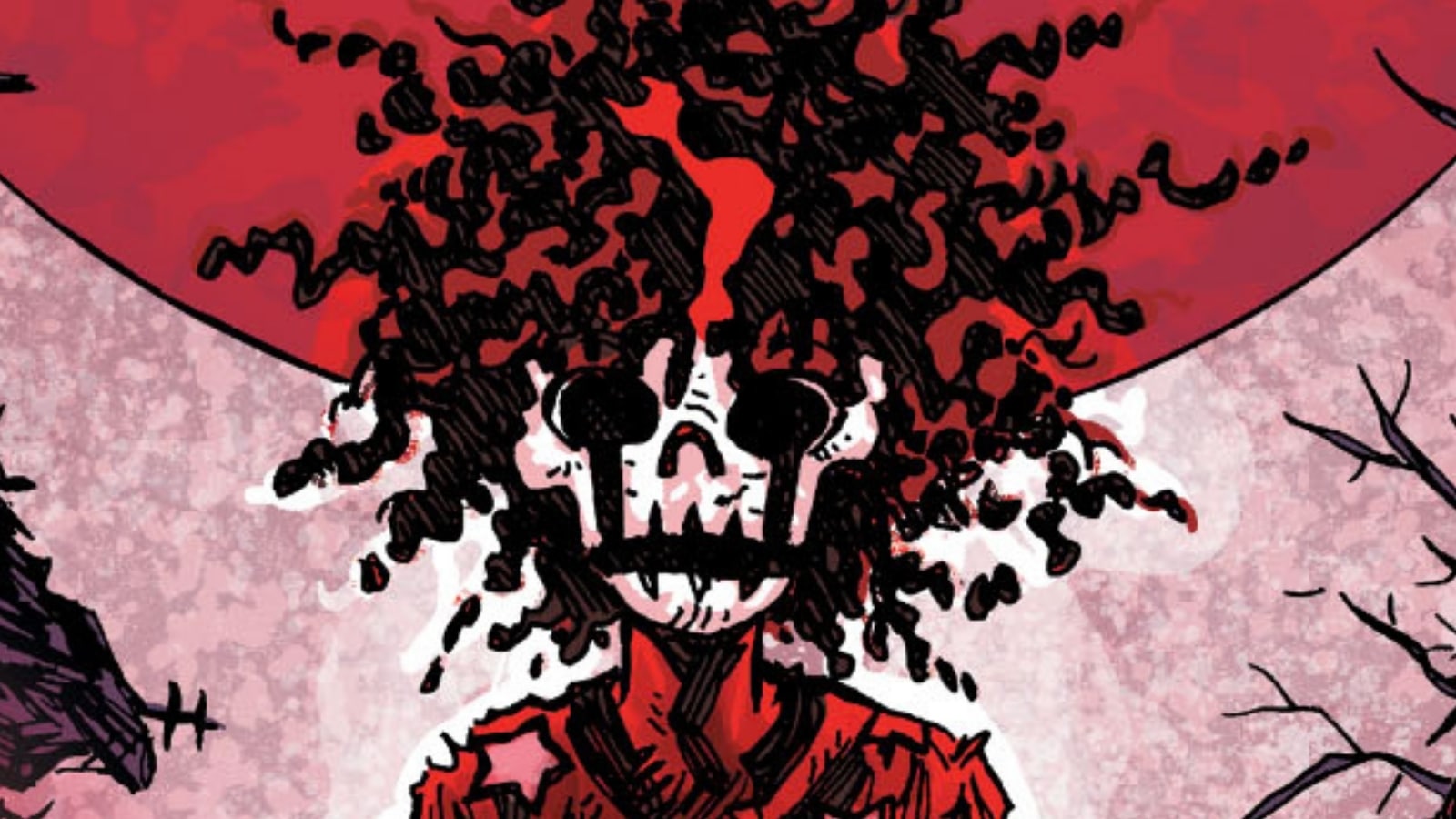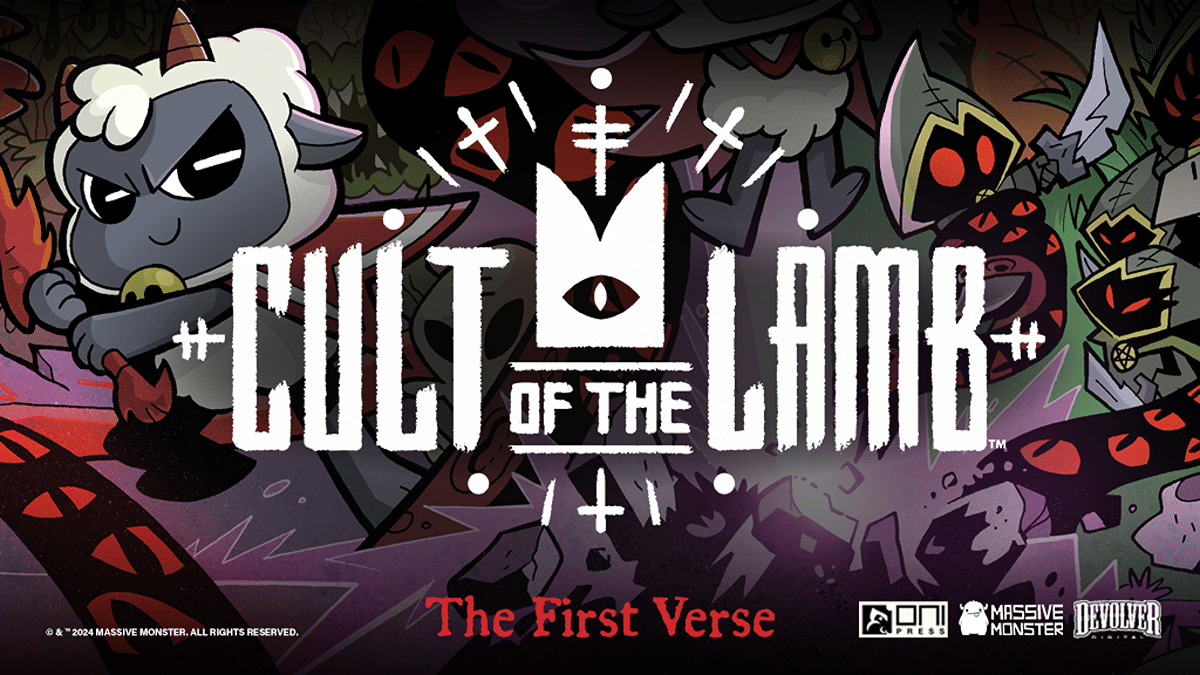At the End of Your Tether
Written by Adam Smith
Illustrated by V.V. Glass
Colored by Hilary Jenkins
Lettered by Jim Campbell
Oni Press
That first love seems so important when you’re in the middle of it, so transcendent and meaningful, and when you’re there your impulse is to believe that any older person who shows the slightest inch of knowing about doesn’t understand you and this other person and what’s between you.
But first love is kind of like getting drunk for the first time. It feels great for a while and then it doesn’t. Then you’re disoriented. Then you shut down. Then you function but you feel awful. Then you promise yourself you’re never going to do that again. Then you do.
I’m reminded of all that as I read At the End of Your Tether, a retro-90s coming-of-age love story that addresses these intense feelings and maps out the emotional rollercoaster of first love in terms I didn’t expect. The book begins with a mysterious scene — three young people setting fire to a body and an ensuing inferno engulfing the landscape around the body — but we shift quickly to Ludo and Arlo are military kids and they bond while escaping a cookout to play a video game together.
Ludo is the son of a military police officer, his mother, and a mechanic, and he’s dissatisfied by several circumstances of his life, but one of the things that he likes is Arlo and their relationship blossoms into love. But Ludo has more unhappiness crash down on him with his family is transferred to another military base, not so far away but far enough that he can’t regularly see Arlo, which puts a strain on what is between them.
A return trip to the old base and an attempt to reunite with Arlo reveals some unsettling news that sends Ludo on a spiral. It’s unexpected for sure, and it opens the door to a more philosophical examination of their relationship, in the context of some science fiction concepts that are used less for hardcore plotting and more for providing a framework for the cerebral pathway the story takes.
At this point, At the End of Your Tether begins to examine more mature subject matter that isn’t the typical stomping ground of first love stories. There are pursuits of what might be and regrets of what were, as well as what never was and what will never be. First love, and for that matter any love, become less of a sure thing, partly because of the acknowledgment that not everything is in your hands, that things outside of your control are common, especially in love, and that every tiny circumstance can lead to big, romantic sweeps or tragic endings or unremarkable fizzles.
At the End of Your Tether is worthy for its scope, but also for its adherence to mystery. By the end of the story, I’m reminded of Donnie Darko and Lost, and both of their insistence on obtuse explanation as a way of keeping your searching after they are done, and using temporality gone haywire as a physical manifestation of the confusion of life in order to do so. In this accounting, first love is so important, but not necessarily for the reasons, you think it is when you are in the middle of it, and that observation by itself makes At the End of Your Tether stand out from so many other stories that tackle the same territory.


